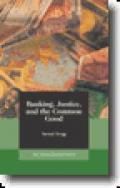


Richard J. Mouw, president of Fuller Theological Seminary in California, has a new blog, Mouw’s Musings, and has taken notice of Sam Gregg’s recent Acton Commentary, “Self Interest, Rightly Understood.”
Giving Gregg credit for making “an important point” with which he largely agrees, Mouw goes on to say: “At the same time this also seems to me to be true. People who are not motivated by an intentional desire to promote mon good often do not in fact promote mon good. And people who do aim to promote mon good often do succeed in doing so.”
Thus, because of this second reality, Mouw concludes that there is “a need for discernment on the part of Christians in evaluating various hard-line economic philosophies.” With that point, I heartily agree.
It seems to me, however, that in some ways the point that Mouw engages, that “as individuals pursue profit” there are all sorts of unintended positive consequences, is a rather small claim that does not itself deny Mouw’s second observation. Gregg himself, in fact, writes in the immediately following line, “None of this means mercial society does not afford opportunities for people to act altruistically.”
It is a valid point for both Mouw and Gregg to make that there is a higher good than pursuit of mere self-interest and one that is consonant with the Christian tradition. That being said, Gregg is concerned making both a more limited and more pointed claim: the good resulting from the secondary virtue of self-interest is still good, and it is even good that is essential mon flourishing.
There shouldn’t be anything controversial about such a claim, especially since it has been held by so many Christian theologians, not least of which is Jonathan Edwards, who distinguished between primary and secondary virtue.
In his treatise on True Virtue, Edwards writes that self-love “is far from being useless in the world” and “exceeding necessary to society, besides its directly and greatly seeking the good of one.” He even says that self-love can be manifest as a sort of “‘negative’ moral goodness,” or “the negation or absence of true moral evil.”
Being that Edwards is concerned to explore the nature of true virtue, rather than this “negative moral goodness,” he doesn’t spend a lot of time examining the implications and social effects of self-love, and that is entirely understandable.
On that score, Edwards’ concern is more like Mouw’s in that he is seeking to describe the highest good. parison with Christian benevolence, the virtuous character of secondary or civil good doesn’t match up. Thus, concludes Edwards, “no affection limited to any private system, not dependent on, nor subordinate to Being in general can be of the nature of true virtue.”
But Gregg’s task is different and more limited than either Mouw’s or Edwards’ concern. Gregg is looking primarily at the civic good that self-interest promotes. And its important to realize that neither claim is necessarily inconsistent with the other.









